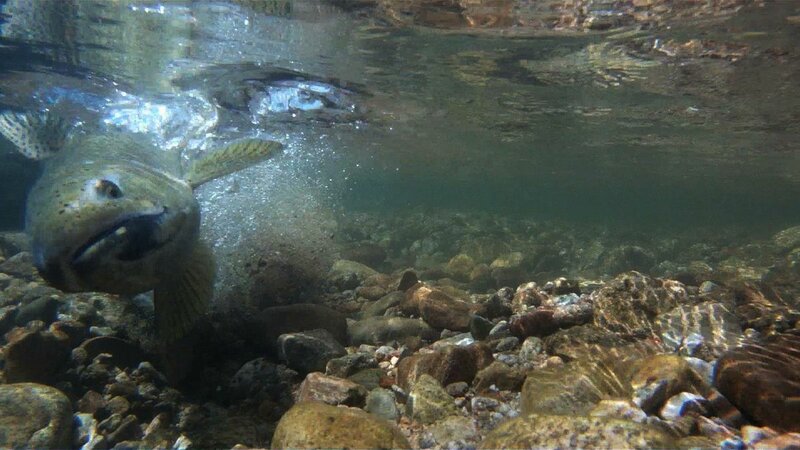Posted on Apr 26, 2022
Oregon ends summer steelhead hatchery to help wild fish
472
12
4
6
6
0
Posted 2 y ago
Responses: 2
PO1 William "Chip" Nagel
..."Studies have shown that hatchery-bred steelhead can weaken the gene pool of their wild counterparts and make it more difficult for wild fish to successfully reproduce. They can also harm wild fish because they compete with those populations for resources.
The North Umpqua River is a 106-mile-long tributary of the Umpqua River."...
..."Studies have shown that hatchery-bred steelhead can weaken the gene pool of their wild counterparts and make it more difficult for wild fish to successfully reproduce. They can also harm wild fish because they compete with those populations for resources.
The North Umpqua River is a 106-mile-long tributary of the Umpqua River."...
(2)
(0)
MSgt Dale Johnson
It almost seems counter intuitive but they are the ones who have boot on the ground and see what their actions have resulted in.
(2)
(0)
I'd like to add an important matter into the mix with respect to "Wild" Salmon or Steelhead, hatchery restocking programs, etc. Having been an Oregon resident for 20 of my 60 years alive and an avid fisherman to boot, I have watched the hatchery programs on site numerous times and have witnessed the fin-clipping of hatchery raised smolts. The smolts move through the clipping station at such a rate that there is no way the clippers (hand-clipping only, no machine) get all the smolts clipped; but I do not know the exact ratio. Add to that another factor that I have seen, during times of spawn, rain events that have raised the creek/river water levels to the point where fish are able to bypass the hatchery barriers used to direct the fish into the hatchery. I have also watched salmon/steelhead jumping the dam on Big Creek (Clatsop County, OR) after heavy rains, allowing them access to 10 more upstream miles of viable watershed. Couple those factors with availability of viable roe for the hatcheries. Over the last 120 years, source supply for fertilized roe for restocking programs has changed a few times, as supply has dwindled in one area, it had to be replaced by supply from another area if the restocking hatchery did not have enough of it's own hatchery-bred salmon returning to spawn in their home water. Couple those 3 factors, and not including commercial over-fishing by the US and other Nations, and the definition of "Wild " gets quite murky. We have had 120 years of hatchery breeding programs which include the introduction of fish stock that were not indigenous to the area, which is critical for fish survival, and inability to stop/prevent hatchery raised escapees from polluting the gene pool. The State of Oregon regulates that any wild fish (adipose fin unclipped) must be released unharmed. No one really knows if they are releasing a (subjectively) wild fish or a hatchery fish that missed the fin clipping process.
(1)
(0)
Read This Next



 Wildlife
Wildlife Fishing
Fishing Environment
Environment


